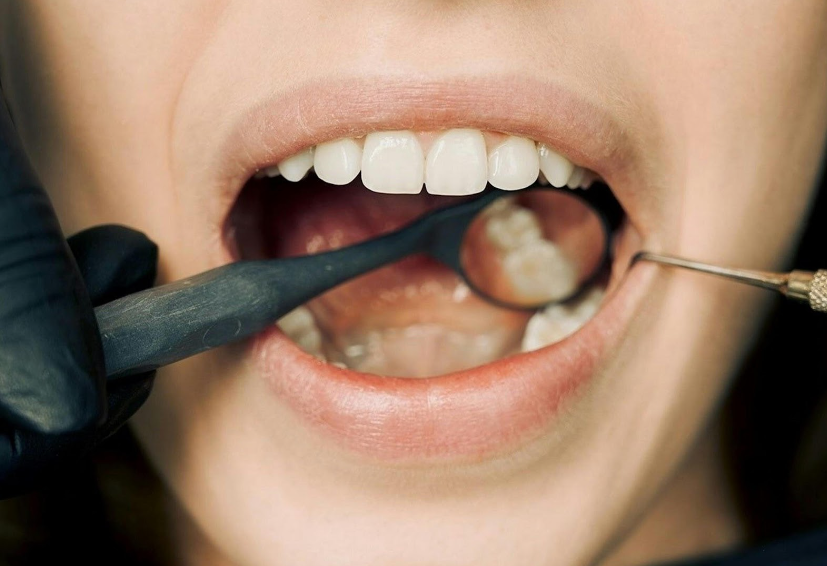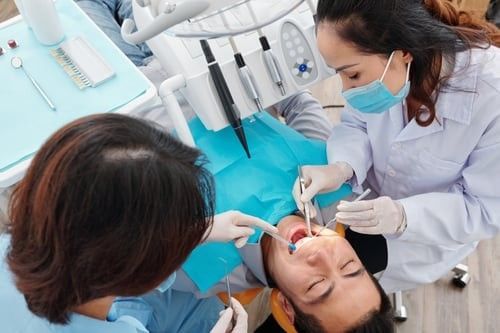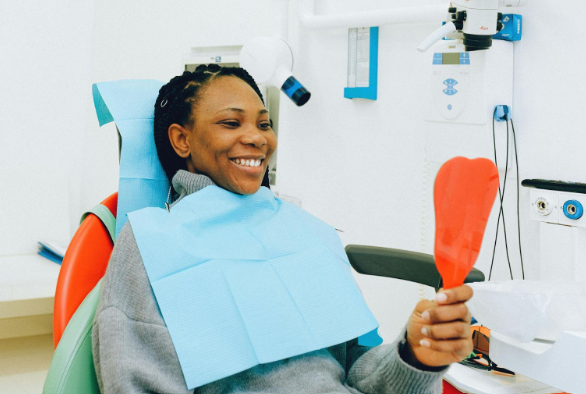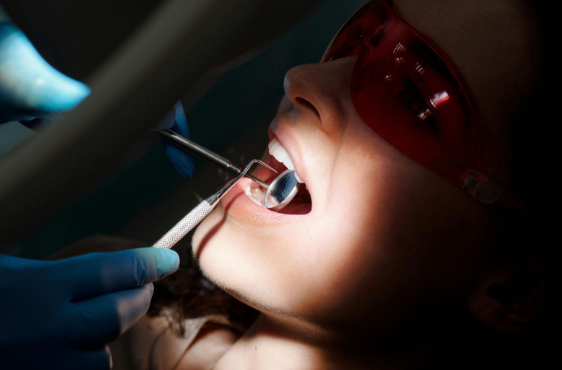Gateway Family Dental Blog
How to Manage Teeth Grinding

Do you ever wake up in the middle of the night with your jaw clenched and your teeth grinding together? Or perhaps you wake up with a dull headache and a sore jaw, not knowing where the discomfort came from.
These experiences could be signs of teeth grinding, also known as bruxism. This involuntary habit of clenching or grinding your teeth can happen when you're awake (awake bruxism) or asleep (sleep bruxism). While occasional teeth grinding may not be immediately concerning, long-term bruxism can lead to various
dental and health problems.
Whether you suspect yourself of grinding your teeth at night or simply want to learn more about this common condition, keep reading!
Causes of Teeth Grinding
Teeth grinding, or bruxism, involves clenching your teeth together with excessive force. The exact reasons behind bruxism remain under study, but several factors are believed to contribute to it:
Stress and Anxiety
The modern world can be stressful, and guess what? Stress is a major culprit for teeth grinding. When stressed or anxious, our muscles, including those in the jaw, tense up. This tension can manifest as teeth grinding, a way for our bodies to release pent-up energy.
Sleep Disorders
Certain sleep disorders, particularly sleep apnea, can disrupt your sleep cycle and lead to teeth grinding during sleep. In some cases, grinding might be a way to maintain an open airway during sleep disturbances.
Misaligned Bite
If your teeth don't fit together due to crooked teeth, missing teeth, or an uneven bite (malocclusion), you might grind them to achieve a better fit. This persistent attempt can lead to chronic bruxism.
Medications
Some medications, like antidepressants or certain stimulants, can have side effects that include teeth grinding.
Habits
Certain habits, like chewing on pencils or pens, can train your jaw muscles to clench, increasing the risk of teeth grinding over time.
Genetics
It is possible that bruxism might have a genetic component. If someone in your family grinds their teeth, you might be more predisposed to developing the condition.
Symptoms of Teeth Grinding (Bruxism)
While you might not always be aware of grinding your teeth, especially at night, there are several tell-tale signs to watch out for:
- Facial Pain: Jaw pain, especially upon waking, is a common symptom of teeth grinding. You might also experience facial muscle soreness or tenderness.
- Headaches: Teeth grinding can lead to headaches, particularly tension headaches, located around the temples or forehead.
- Earaches: The pain from teeth grinding can sometimes radiate to the ears, causing discomfort.
- Tooth Sensitivity: Grinding can wear down the protective enamel on your teeth, increasing sensitivity to hot, cold, or sweet foods and drinks.
- Teeth Damage: Over time, teeth grinding can cause cracks, chips, or excessive wear and tear on your teeth.
- Loose Teeth: In severe cases, chronic teeth grinding can loosen teeth or even lead to tooth loss.
- Sleep Disruption: Grinding your teeth at night can disrupt your sleep quality, leading to daytime fatigue.
- Nighttime Grinding: Since nocturnal bruxism often goes unnoticed, watch out for signs like a flattened or worn-down appearance of your teeth, particularly in the morning. Your partner might also notice grinding sounds during your sleep.
If you're experiencing any of these symptoms, it's important to schedule an appointment with
your dentist to discuss the possibility of teeth grinding and get a proper diagnosis.
Managing Teeth Grinding (Bruxism)
Fortunately, several strategies can help manage teeth grinding and prevent its potential consequences:
Stress Management
Stress is a major trigger for teeth grinding, so managing stress can be a good first step. Techniques like deep breathing exercises, meditation, yoga, or spending time in nature can be incredibly helpful in reducing overall stress levels.
Relaxation Techniques
If you clench your jaw during the day, practice progressive muscle relaxation or stretching exercises to help release tension.
Try a Mouth Guard
A custom-made mouth guard, also called a night guard, can be an excellent way to protect your teeth from the damaging effects of grinding. It acts as a barrier between your upper and lower teeth, reducing the force of grinding and minimizing damage, particularly during sleep.
Dental Treatment
If grinding has already damaged your teeth, your dentist may recommend restorative treatments like crowns, fillings, or other procedures to address the damage. In some cases, if a misaligned bite is a contributing factor, orthodontic treatment with braces or aligners might be recommended to achieve proper tooth alignment.
Address Underlying Causes
If an underlying condition like sleep apnea or misaligned teeth contributes to your teeth grinding, addressing the root cause can reduce grinding episodes. Make sure to consult your dentist to figure out the most suitable course of action. Treating sleep apnea with a CPAP machine can help improve sleep quality and reduce bruxism.
Live a Healthy Lifestyle
Getting enough sleep, maintaining a healthy diet, and avoiding excessive caffeine and alcohol consumption can reduce stress and improve sleep quality, minimizing the risk of teeth grinding. Limiting caffeine intake, especially in the afternoon and evening, can be helpful, as caffeine is a stimulant that can exacerbate muscle tension.
Habit Replacement
If you have unconscious habits like chewing on pencils or pens, try replacing them with stress balls or other objects you can safely squeeze to release tension.
Biofeedback
Biofeedback is a therapeutic technique that uses electronic devices to help you become more aware of your body's responses. In the case of teeth grinding, biofeedback can help you identify and manage muscle tension in your jaw, potentially reducing grinding episodes.
Come see us at
Gateway Family Dentistry if you're grinding your teeth. Our team will find out why it's happening and will work with you to find a solution that fits.
Contact us for help and to keep your smile healthy.




